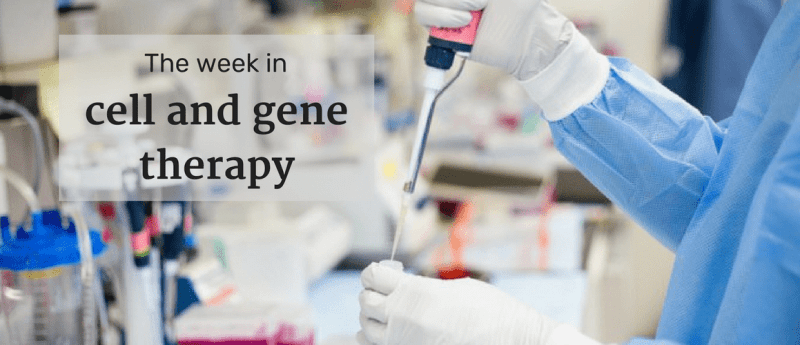Cell therapy weekly: CAR-T therapy against multiple myeloma advanced by FDA

This week: Micromotors to maneuver cells and particles with magnets and ultrasound
The news highlights:
CAR-T therapy against relapse/refractory multiple myeloma advanced by FDA
FDA halt Novartis’s Zolgensma® trial due to safety concerns
Ultrasound powered micromotors for particles and cells
CAR-T therapy against relapse/refractory multiple myeloma advanced by FDA
The FDA has granted Regenerative Medicine Advanced Therapy status to the CT053 CAR-T therapy produced by CARsgen (Shanghai, China). Upgraded after strong clinical Phase 1 data demonstrated an effect in Chinese multiple myeloma patients, the advanced status will allow the fast-tracked development of the therapy to bring it to market quickly.
“CT053 has demonstrated potential to address unmet medical needs for patients with rrMM [relapse/refractory multiple myeloma]. The designation is a remarkable achievement towards expediting the product development and review of our planned biologics license application and will be invaluable to bringing this cutting-edge advance to patients as quickly as possible,” explained Chief Executive Medical Officer, Zonghai Li (CARsgen).
FDA halt Novartis’s Zolgensma® trial due to safety concerns
The FDA has ordered Novartis to cease a clinical trial of their gene therapy treatment, Zolgensma®, after concerns were raised about the health of animals from a preclinical study. The clinical trial was examining the effect of high doses of Zolgensma, administered intrathecally, on patients with spinal muscular atrophy. However, when animals demonstrated dorsal root ganglia mononuclear cell inflammation and some accompanying nerve degeneration, the trial was halted.
In a statement from Novartis, the company explained: “The clinical significance of the DRG inflammation observed in this pre-clinical animal study is not known and was not seen in prior animal studies with AVXS-101. DRG inflammation can be associated with sensory effects. Of note, we have completed a thorough review of human safety data from all available sources to date and no adverse effects related to sensory changes have been seen in AVXS-101 intrathecal or Zolgensma. We are working with health authorities to confirm further guidance to clinical investigators.”
Ultrasound powered micromotors for particles and cells
Steered by magnets and ultrasound, a new micromotor has been designed by researchers at the University of California San Diego (CA, USA). The research, from a collaboration with the University of Pennsylvania (PA, USA) and the Harbin Institute of Technology (Heilongjiang, China), would allow precision delivery of cells and substances to target sites, opening new avenues for regenerative medicine, nanomedicine and pharmacology.
“These microswimmers provide a new way to manipulate single particles with precise control and in three dimensions, without having to do special sample preparation, labeling, surface modification,” stated lead author Joseph Wang (University of California San Diego).
For more weekly cell therapy news, read previous editions of the cell therapy weekly.